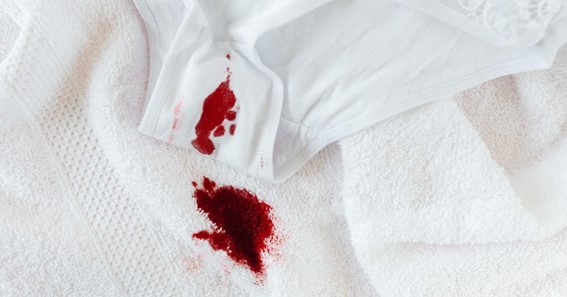Do you have blood stains on your favorite clothes that just won’t come out, no matter how hard you scrub? If so, then we’ve got the solution for you! Removing red and pink-colored stains from clothing can be tricky and time-consuming if done incorrectly. Fortunately, there are simple methods of quickly getting rid of them without spending too much money or energy. Read this blog post to learn how to clean pillows without washing the best ways to get blood stitches out of clothing fast – so that your garments retain their original brightness and shine!
Aspirin
If you want to get blood out of clothes quickly and easily, you can use aspirin. It can dissolve in water and is a natural stain remover. If you’ve spilled blood on your clothes, crush a couple of aspirin tablets and then mix with some water. This mixture can be applied to the stain and allowed to sit for at least 30 minutes. Then, you can wash the clothes as usual.
The main ingredient of aspirin is salicylic acid. This organic compound has the ability to saturate white fabrics and remove stains. It is especially effective on sweat stains. It also helps eliminate a yellow tint.
Click here – 6 Tips To Get The Best Quality Product Images For eCommerce
Baking Soda
A natural cleaner like baking soda can help you get blood out of clothes quickly and effectively. The natural ingredients in baking soda will absorb moisture and draw blood from a cloth, and will not harm the fabric. It will also remove dried blood stains. To use it, apply a thin layer of baking soda to the stain and leave it for about 30 minutes. Once the baking soda has absorbed the moisture, simply wipe it away with a clean cloth.
Blood stains on bedding can also be easily removed with the same methods as for clothes. Be sure to use a non-biological detergent, such as Persil Non-Bio Liquid. If you’re sensitive to hydrogen peroxide, choose a non-bio option instead. In addition, you should use cold water to wash the sheets, and you can also use a cloth with detergent directly on the stained surface.
Meat Tenderizer
If you want to get blood out of your clothes quickly, you can use meat tenderizer to break down the proteins in the blood and remove it. It works well on dry stains, but it will not work on wet or delicate fabrics. This powder can be bought online or at your local grocery store. Leave it there for at least half an hour and then wash the clothes.
To use meat tenderizer, you should first rinse your clothing thoroughly. Ensure that you use the unflavored one, as this will help break down the protein in the blood stain. After you’ve mixed the paste with water, you should allow it to sit on the blood stain for about thirty minutes. After that, remove it with a clean towel and rinse it with cool water with liquid detergent. It’s important to use the unflavored version, since flavored meat tenderizer can cause more staining. Also, don’t use it on carpets and silks, as it can destroy these materials.
Click here – What Is an Ultimate Game Development Company for Your Project?
Contact Lens Solution
Hydrogen peroxide-based contact lens solutions are available in the market. These solutions should be used with caution. They can damage contact lenses and may be harmful to your vision. Always follow the instructions on the packaging of your contact lens solution carefully. Make sure that the product you buy meets the standards set by the manufacturer.
Before applying contact lens solution, it is important to know whether you’re allergic to the ingredients in it. If you’re allergic to any of the ingredients, you should avoid using the product. Often, you’ll see red tips on the bottles that remind you to use it with special care. Also, you can wash your body pillows in the washer, use lens solution to remove urine stains from mattresses and other clothes. If you have any doubts about its safety, contact your eye care provider immediately.
Conclusion
If you have a blood stain on your clothes, there are a few things you can do. First of all, you need to use a cold wash, as hot water can set blood stains. You should also avoid washing delicate fabrics, such as silk and wool.

